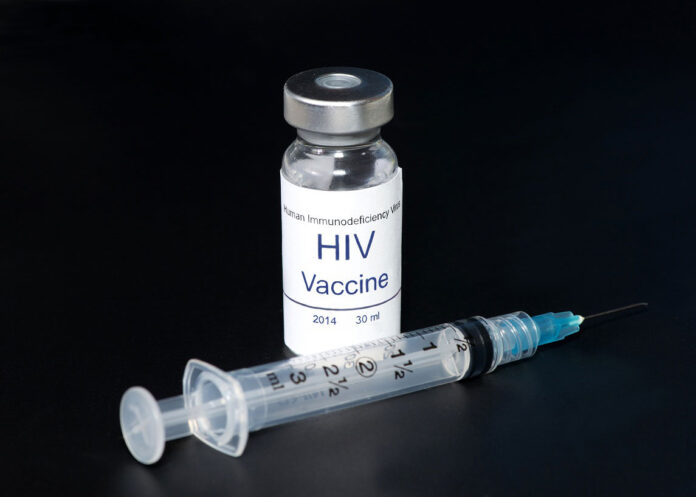Research shows that neutralizing antibodies which are induced by vaccination can protect animals from HIV infection.
Developing a safe and effective HIV (Human Immunodeficiency Virus) vaccine, despite up to 30 ongoing clinical trials, is a challenge faced by research community for decades. This is the scenario in spite of making good progress is understanding how HIV virus interacts with the human immune system. One of the fundamental challenges in this area is the ability of HIV to replicate rapidly and also with slightly altered genetic makeup every time. Neutralizing antibodies generated against HIV are seen to be insufficient to completely clear an HIV infection because they can never provide protection against different strains of HIV. But even then, vaccine-induced HIV antibodies are still going to be important for protection from this infection.
Perils of an HIV infection
Unfortunately, the primary target of HIV virus is our immune system which is supposed to protect us in the first place. This is by far the biggest challenge in tackling an HIV infection. Another limitation in research on HIV vaccine is that it cannot be tested in laboratory in animal models like mice because HIV only infects humans. Some research has been carried out in a primate equivalent of HIV called SIV but this is still an imperfect model.
Scientists also tried making bi-paternal mice (mice with two fathers), but using a male DNA was more challenging as it involved modifying haploid ESCs containing male parent’s DNA and required deletion of seven genetic imprinting regions. These cells were injected along with the sperm of another male mouse into a female egg cell of which the nucleus which contains female genetic material was removed. The embryos created now had only DNA from male were transferred along the placental material to surrogate mothers who did carry them to full term. However, it didn’t work well for the 12 full-term mice (2.5 percent of total) that were born from two fathers as they survived only for 48 hours.
New HIV vaccine
An experimental HIV vaccine designed by researchers at Scripps Institute USA is seen to be working in non-human primates – rhesus monkeys. The goal was to be able to make neutralizing antibodies which could be induced through vaccination and these antibodies would ‘teach’ the immune system to fight the HIV virus by targeting a vulnerable area on the virus. The key to strong immune response with any vaccine is to select the right antigen (here, HIV or a part of it) which can stimulate the immune system to generate a desired response. Research has shown that such antibodies should bind to the virus’s outer protein trimer and if this happens the antibodies can successfully protect the organism from attack of the virus. A major challenge here is that organisms must be able to make these antibodies themselves. This can be achieved only when the immune system is exposed to the virus’s outer protein trimer, thus getting trained to be able to identify the target and produce correct antibodies against it.
The protein trimer was seen to be very unstable when it was isolated alone and researchers were unable to isolate it without breakage. In 2013, scientists were able to successfully genetically engineer a stable trimer called SOSIP which looked very similar to the HIV envelope protein trimer. For the current study scientists used this to design the experimental HIV vaccine which would contain the stable SOSIP trimer and wanted to check if this can trigger the immune system to produce desired antibodies to protect from an HIV infection.
The designed vaccine was tested on two groups of non-human primate rhesus macaques. In a previous study, monkeys have been seen to develop either low or high antibody levels after a vaccination. For current study, six of each of these monkeys were selected and additional twelve unimmunized primates were used as control. The primates were exposed to a virus form called SHIV (a genetically engineered simian version of HIV containing same trimer as the human virus). This is a very resilient form of the virus called Tier 2 virus because it’s difficult to neutralize and thus is challenging in the same manner as human virus and this particular strain affects most people.
The new vaccine enables the monkeys to make neutralizing antibodies against this strain of the virus and worked well on previously vaccinated monkeys with high levels of antibodies protecting the animal against infection. However, the result clearly indicates that success is achieved in monkeys with already high antibody levels meaning that this would be a preconditional criterion. Also, these animals who were previously vaccinated, their antibody levels start to deplete in weeks or months following the vaccination. An estimation was gathered on how much antibody levels would be needed to keep away the infection.
This study published in Immunity provides an estimate for the first time of how much levels of neutralizing antibodies would be required in order to protect someone from HIV. Its interesting to note that only the production of neutralizing antibodies by the immune system was seen to be critical. The aim would be to sustain high antibody levels. There is still some interval before this experimental vaccine could move to human clinical trials. The authors are confident that this is a major understanding achieved in the field of HIV vaccine almost after three decades. Such a strategy could be applied to other strains of HIV as well.
***
{You may read the original research paper by clicking the DOI link given below in the list of cited source(s)}
Source(s)
Pauthner MG et al. 2018. Vaccine-Induced Protection from Homologous Tier 2 SHIV Challenge in Nonhuman Primates Depends on Serum-Neutralizing Antibody Titers. Immunity.
https://doi.org/10.1016/j.immuni.2018.11.011
***




































